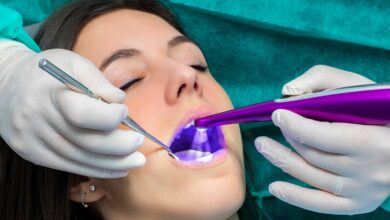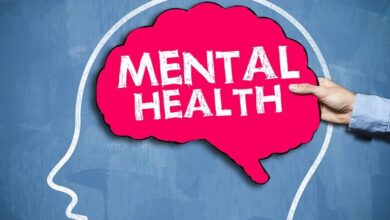Benzodiazepines Detox: Safely Breaking Free from Prescription Dependence

Benzodiazepine detox is frequently the essential starting point for individuals struggling with dependence on anti-anxiety or sleep medications. If you’re ready to take back control of your life, you can begin safely at Silicon Valley Recovery’s benzodiazepines detox program.
For some people, these medications are initially sent to aid as short-term solutions. Still, others suffering from anxiety, panic disorders, or insomnia become physically dependent over time, even if taken as directed. Stopping all of a sudden can also cause dangerous health risks like seizures, severe withdrawal symptoms, psychosis, and, in extreme cases, even death.
In this article, we will prepare you for what to expect from the benzodiazepine detox process, covering the importance of supervision, the crucial first steps, and the journey toward the steps to liberation.
What Are Benzodiazepines?
Benzodiazepines (also referred to as “benzos”) are a collection of drugs used to compositionally treat the following conditions:
- Generalized anxiety disorder
- Panic attacks
- Insomnia
- Muscle spasms
- Seizures
- Alcohol withdrawal
Some common benzodiazepines are Xanax (alprazolam), Valium (diazepam), Ativan (lorazepam), and Klonopin (clonazepam). Though these medications work under the premise of calming the nervous system, prolonged usage comes with a high risk of dependence forming and, ultimately, addiction.
Why Benzos Addiction Detox is Important
When an individual is physically dependent on benzodiazepines, it is extremely dangerous to stop using them without medical aid. Withdrawal symptoms may include:
- Severe anxiety and insomnia
- Muscle spasms along with increased perspiration and rapid heartbeat
- Delusional thoughts
- Convulsions
- Thoughts of self-harm
Withdrawal from benzodiazepines is not only uncomfortable but could also potentially lead to death. That is why medically supervised detox isn’t optional – it is an absolute requirement.
Is it Possible to Self Detox from Benzodiazepines?
The simple answer is no. Unlike other drugs, withdrawal from benzodiazepines requires medical supervision. Detoxing at home, without a structured taper, especially after long-term use, can lead to uncontrollable seizures, severe psychological distress, and intense suffering.
Benefits of a detox program include:
- Customized schedule for tapering
- Round-the-clock medical supervision
- Management of withdrawal symptoms with the aid of safer drugs
- Counseling and therapy
This controlled treatment environment enables recovery by protecting the body while simultaneously providing psychological encouragement to overcome the toughest challenges.
Anticipation During Benzodiazepine Detox
The detox timeline is different for each individual depending on which benzo was used, the dosage taken, and for how long. This is how you might break this down:
Day 1 – 3
Beginning symptoms such as anxiety, restlessness, insomnia, and mood swings set in. This happens at the start of the ETA tapering plan.
Day 4 – 7
Seems like symptoms would exacerbate. Some possible symptoms are tremors, confusion, and rebound anxiety. Medical staff will change your medications to help ease the pain.
Week 2 and so on
Stabilization sets in, but aches and pains psychologically like depression and paranoia may still remain, but monitoring halting is important.
In some cases, withdrawal symptoms may persist for several months, particularly with high-dose or long-term use.
What role does medication play during detox?
Once in a clinical setting, most patients are found to be using self-prescribed medications, anticipating to taper the detox process with medications that ease off the withdrawal smoother.
- Longer benzodiazepines diazepam for gradual weaning
- Anticonvulsants to prevent seizures
- Beta-blockers for heart rate and anxiety reduction.
- Sleep aids and depression relievers to even the mood and stabilize it.
Addiction medicine manages these administrations while observing the dosage, progress, and physical reaction in real-time.
Emotional Health Support Throughout the Detox Process
As revealed by detox methods, physical stabilization precedes detoxifying the individual emotionally and physiologically. In the course of detox, most patients experience:
- Panic attacks
- Crippling cravings
- Depressive states
- Paranoia or irrational fears
Therapy, emotional guidance, and even crisis counseling are some of the supports offered by specialists throughout the process. The support includes much more than emotional detox; whole-person care is the goal.
What Makes Medical Detox Facilities Stand Out?
You might have pondered: “What is the point of going to a facility if I can taper down slowly at home?” Take note of the following:
- Safe and supportive environment: free of access to triggers or drugs.
- Immediate access to medical response without delays during an emergency.
- Support to boost the healing process.
- Holistic treatment by doctors, nurses, and therapists.
- Customized adjustments based on daily monitoring of progress.
Selecting a facility such as Silicon Valley Recovery greatly improves your chances of success in terms of both short-term and long-term goals.
Life After Detox
Completing detox is just the first step. After stabilization of the body, the next step to complete addiction treatment is to commence.
This may include:
- Inpatient rehab programs
- Outpatient therapy
- Cognitive Behavioral Therapy (CBT)
- Holistic therapies, like yoga, meditation, and art therapy
- Dual diagnosis treatment for co-occurring mental health issues
- Support groups like NA or SMART Recovery
Ongoing care intends to prevent relapse and assist you in constructing a meaningful life devoid of drugs.
Frequently Asked Questions
Is benzodiazepines detox painful?
It can be uncomfortable, although, with appropriate tapering and medical support, symptoms are well managed.
How long does Benzo detox take?
Acute withdrawal ranges from 1 to 4 weeks. Some symptoms, such as anxiety, may persist for months afterward.
Can I stop taking Benzos cold turkey?
Absolutely not. Doing so abruptly is very risky and may trigger seizures or psychosis. Medical detox is always required.
Will I be given other drugs during detox?
Yes, people are usually given long-acting benzodiazepines and other medications that will control symptoms safely and comfortably.
What happens if I relapse after detox?
Relapse is always a risk, which is why continuing care – rehab, therapy, and support – is crucial after detox has been completed.
Real Stories: The Impact of Professional Detox
The most impactful thing about detox centers is the change that occurs within a matter of weeks. Clients often show up broken, anxious, and fearful. They often start smiling after a few days and regain hope within weeks.
You don’t have to suffer like this in silence. There is a way out – and it starts with reaching out for help.
Final Thoughts: healing begins with the first step
Benzodiazepine detox is tough, but with the right medical and emotional care, it is possible – and a lot safer and more successful.




